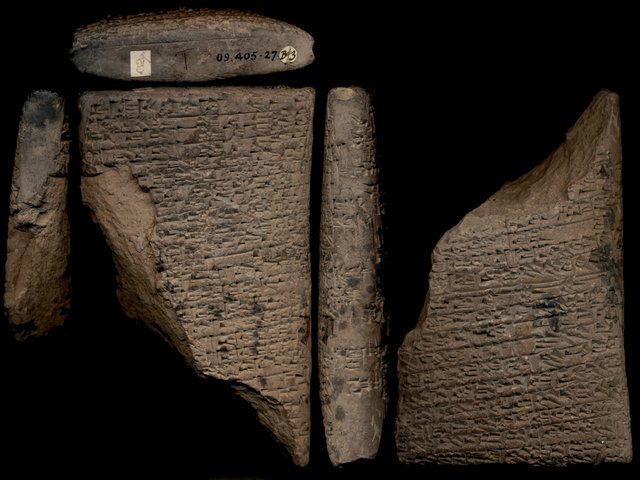Sumerian of the Day

The writing implement used in writing cuneiform was a reed that was cut at a slight angle so as to produce more of an arrow rather than a circle. The Sumerian word for this reed was, apparently, gi-dub-ba, where "gi" meant reed and "dub" meant clay tablet. The literal translation of gi-dub-ba was therefore something like "reed of the tablet".
Oxford University in the UK has a handy guide for writing cuneiform. Well, script has fallen out of fashion, it's hard to get decent paper, so it only makes sense to have an alternative.
http://cdli.ox.ac.uk/wiki/doku.php?id=how_to_write_cuneiform
The Sumerians called the arrow/teardrop symbol "santag", but I'm unhappy with the suggested etymology.
A complete list of symbols (known) and what period they were used in is kept at the Cuneiform Digital Library Initiative. It's a comprehensive site, albeit not always useful.
http://cdli.ox.ac.uk/wiki/sign_lists
Yoda would have appreciated Sumerian. It's confusing and the word order is weird to us.
One of the annoying things about Sumerian is that is was never designed to render speech, it was originally designed as a memory aid. As it got more complex, symbols became simpler and writing more complex, but advanced shorthand is still shorthand. Anything "obvious" never gets included. Unfortunately, it's not obvious now and that makes it difficult to read or speak. (Side note to sci-fi fans - Anne McCaffery based several novels on just that one point, and many visions of the Singularity event in society depend on it. Quick, easy, assumption-free - pick any two.)
Cool. It's really fascinating that these ancient texts have survived, and folks can read them thousands of years later.